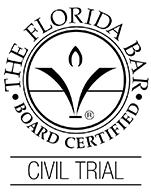After a car accident, obtaining proper medical care isn’t just crucial for your health—it’s essential for establishing the legal foundation of your injury claim. Without thorough documentation, insurance companies may minimize or deny your injuries, regardless of how severe your suffering might be.
We at Dismuke Law have helped countless car accident victims throughout Florida navigate the complex process of documenting injuries and securing fair compensation. Understanding what medical records you’ll need and how they strengthen your case can make a significant difference in the outcome of your claim.
Emergency Medical Records and Hospital Documentation
The documentation trail often begins immediately after your accident with emergency medical services and hospital records. These initial records serve as critical evidence:
- Ambulance and paramedic reports documenting your condition at the scene
- Emergency room admission forms and physician notes
- Results of diagnostic tests performed (X-rays, CT scans, MRIs)
- Hospital discharge instructions and follow-up recommendations
- Medications prescribed to manage pain or other symptoms
- Photos of visible injuries taken by medical staff
These records establish the critical connection between the accident and your injuries. When you seek emergency care promptly, it creates contemporaneous documentation that insurance companies find difficult to dispute. Even if you initially decline ambulance transport, visiting an emergency room or urgent care facility on the day of the accident provides valuable evidence.
Primary Care Physician Records
Your regular doctor often plays a central role in coordinating your overall care and documenting your ongoing symptoms:
- Office visit notes detailing your complaints and physical exam findings
- Referrals to specialists for specific injury treatment
- Documentation of pre-existing conditions and how they differ from new injuries
- Monitoring notes showing progress or complications during recovery
- Work restriction recommendations and activity limitations
- Telehealth visit records related to your injuries
If you had an established relationship with your primary care physician before the accident, these records gain additional credibility by documenting your previous health status. This comparison helps demonstrate how the accident changed your physical condition and well-being.
Specialist Evaluations and Treatment Records
Most serious accident injuries require assessment and treatment by medical specialists who provide detailed documentation:
- Orthopedic surgeon reports for bone, joint, and soft tissue injuries
- Neurologist evaluations for head injuries, concussions, or nerve damage
- Physical therapy initial assessments and progress notes
- Chiropractor treatment records and adjustment documentation
- Pain management specialist reports and procedure notes
- Mental health provider records for psychological injuries like PTSD
Specialist records often contain more detailed observations about specific injuries and offer prognosis information that helps establish the long-term impact of your injuries. These experts may also provide testimony about complex medical issues if your case goes to trial.
Diagnostic Testing Results
Modern medical imaging and laboratory tests provide objective evidence of injuries that might otherwise be disputed:
- X-ray reports showing fractures or structural abnormalities
- MRI results revealing soft tissue damage not visible on other tests
- CT scan reports detailing internal injuries or bleeding
- Nerve conduction studies documenting nerve damage
- Laboratory test results showing inflammation or other injury markers
- Functional capacity evaluations measuring physical limitations
These objective findings are particularly valuable for proving injuries like soft tissue damage, which insurance companies often try to minimize as “just whiplash.” Having clear diagnostic evidence helps substantiate your pain and limitations with measurable medical findings.
Prescription and Medication Records
Documentation of medications prescribed for your injuries serves multiple purposes in your case:
- Pharmacy records showing filled prescriptions and refills
- Pain medication logs demonstrating ongoing discomfort
- Documentation of side effects from necessary medications
- Records of injection therapies or pain management procedures
- Over-the-counter medication expenses related to your injuries
Medication records help establish the severity and duration of your pain while also documenting a significant component of your economic damages. When prescription medications are necessary for extended periods, this evidence supports claims of chronic pain and ongoing suffering.
How We Can Help You Document Your Car Accident Injuries
At Dismuke Law, we understand how overwhelming the medical documentation process can be while you’re trying to recover from your injuries. Our experienced legal team knows exactly what records are needed to build a compelling injury claim and can help ensure nothing falls through the cracks.
If you’ve been injured in a car accident in Florida, don’t leave your medical documentation to chance. Contact Dismuke Law today for dedicated representation from attorneys with proven success handling motor vehicle injury cases. Call us at (863) 250-5050 or fill out our contact form to schedule a free consultation about your potential claim.


![cftla-member[2]](https://www.1800askdave.com/wp-content/uploads/2022/03/cftla-member2.png)
![cftla-member[3]](https://www.1800askdave.com/wp-content/uploads/2022/03/cftla-member3.png)










